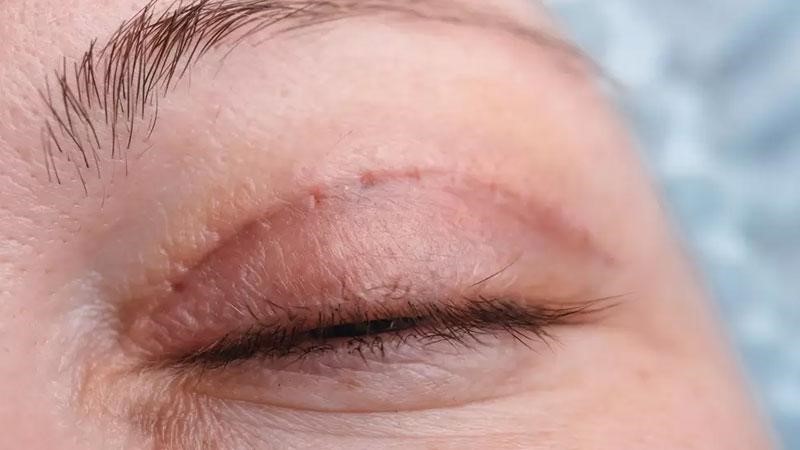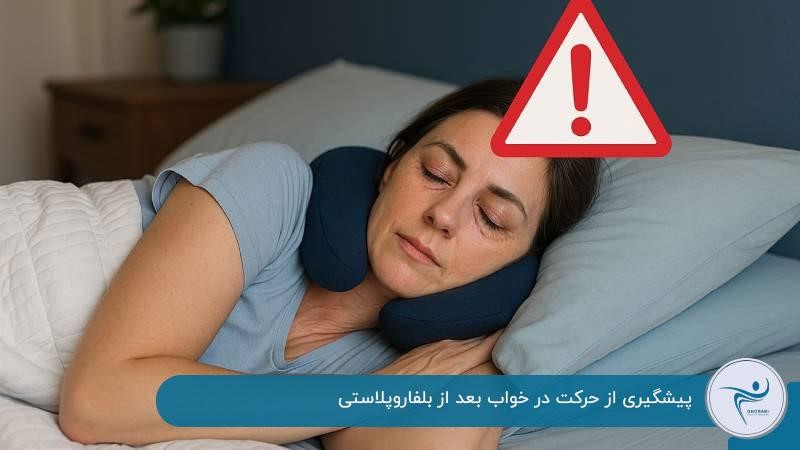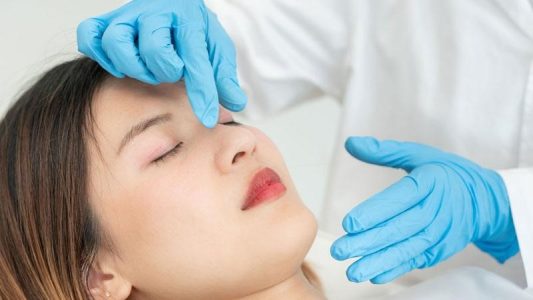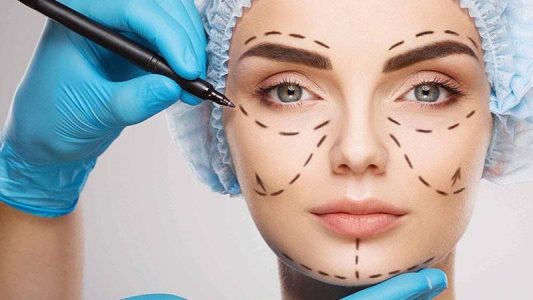How to Sleep After Blepharoplasty Surgery; A Complete Guide + Important Tips

One of the most influential factors in the recovery period after blepharoplasty surgery is the patient’s sleeping position. Most patients believe that the most important stage is over once the surgery is finished; however, the method of post-operative care, especially during sleep, plays a crucial role in reducing swelling, protecting stitches, and accelerating the healing process. Choosing an unsuitable sleeping position may put pressure on the surgical areas, cause more inflammation, or even disrupt the healing process.
If you intend to experience a comfortable, hassle-free, and complication-free recovery period, you need to be familiar with how to sleep after blepharoplasty. In the following, all the essential and fundamental points related to the correct sleeping position after blepharoplasty surgery will be provided.
The correct sleeping position after blepharoplasty surgery; the safest way to begin recovery One of the first questions patients ask after eyelid surgery concerns the appropriate sleeping position during recovery. The skin around the eyes is more sensitive than ever after blepharoplasty, and the slightest pressure or contact may damage the stitches or increase swelling. This point is doubly important for those who, along with blepharoplasty, have undergone other surgeries related to the eye area such as
- Brow lift surgery
- as well; because larger areas will be involved in the healing process. Therefore, the way to sleep after blepharoplasty must be completely principled, without direct contact with the surgical site and aimed at reducing inflammation. The principles of a suitable sleeping position after blepharoplasty are as follows:
- Sleeping on your back and facing upwards is the best position to protect the eyelids from pressure and contact.
Avoiding sleeping on your side or stomach, especially in the first few weeks, is essential. If you are not used to sleeping on your back, it is recommended to start practicing this position a few weeks before the surgery. This sleeping method not only prevents direct pressure on the stitches but also reduces the likelihood of

Swelling after blepharoplasty
It also reduces the risk of infection and contamination as contact between the face and pillow increases, so keep this point in mind.
- Elevating the head during sleep; the most important solution to reduce swelling and bruising after blepharoplasty
- One of the most important principles in how to sleep after blepharoplasty surgery is to keep the head positioned higher than the heart. This improves lymphatic fluid circulation and reduces fluid accumulation around the eyes, ultimately reducing the severity of swelling and bruising:
- Using two or more standard pillows under the head and shoulders.
Using inclined pillows (wedge pillow) to maintain a 30 to 45-degree angle. In the first week, sleeping in a recliner or electric chair is also a practical option. Elevating the head while sleeping is one of the important principles in reducing swelling after blepharoplasty. Most recommendations related to this are provided by experienced physicians and cosmetic specialists. If you are under the care of

The best cosmetic specialist in Tehran
for surgery, the doctor will provide you with the necessary care in this area.
- Preventing movement during sleep after blepharoplasty; how to protect the eyelids?
- During the night, unconscious body movements may cause unwanted pressure on the eyes. This may displace the stitches or lead to inflammation and infection. Therefore, controlling involuntary movements during sleep is an important care requirement. The ways to limit movement during sleep after this surgery are as follows:
- Placing side pillows around the body to prevent rolling onto the side or stomach.
Not using a sleep mask or eye mask, as these put direct pressure on the eyelids. Completely avoiding rubbing the eyes, even in a semi-conscious state. For those who have undergone combined surgeries such as

Temporal lift surgery
along with blepharoplasty, these recommendations are doubly important. Because any unauthorized contact or pressure may lead to undesirable results.
- A suitable sleeping environment after blepharoplasty; the role of relaxation in faster recovery
- Creating a healthy and hygienic sleeping space helps reduce irritating factors and speed up recovery. A dark, quiet room with a suitable temperature improves your sleep quality and prevents dry eyes. The characteristics of a suitable sleeping environment after blepharoplasty surgery are as follows:
- Using a humidifier to maintain air humidity and prevent dry eyelids.
Washing and changing pillowcases daily to reduce the risk of infection. Avoiding the presence of pets in the bed to prevent the entry of allergens. If performed by
Dr. Ghorabi, cosmetic surgeon
this procedure, all the necessary points will be explained to you in the pre-operative consultation; therefore, don’t worry about these points.
- Resting the eyes at night after blepharoplasty surgery; a way for effective post-operative repair
- Sleep is not only a healing factor; reducing visual strain during the day is just as important. After blepharoplasty, the eyes need rest to avoid dryness, irritation, and inflammation. Important points for reducing eye strain after this surgery are as follows:
- Reducing the use of television, mobile phones, and monitors in the early days.
Listening to podcasts or audiobooks instead of watching movies or reading. Closing the eyes during rest to reduce fatigue of the muscles around the eyes.These recommendations, along with other

Blepharoplasty care
, lead to a reduction in the recovery period and post-surgical complications.
- Nightly habits after blepharoplasty; how to have better quality sleep?
- Daily behaviors, especially in the hours before sleep, may have a significant impact on sleep quality and consequently the healing process. Avoiding environmental stimuli and regulating sleep behaviors are among the important points in this regard. The actions that should be considered for a comfortable sleep after surgery are as follows:
- Avoiding caffeine consumption at least 4 hours before bedtime.
Turning off all electronic devices one hour before going to bed. Performing breathing exercises or gentle stretching to reduce pre-sleep tension. If, in addition to blepharoplasty, you have undergone procedures such as
Eye lift surgery
or brow lift surgery, the importance of observing these points is doubled, as these methods are performed in the sensitive area of the face. Why is the way you sleep after blepharoplasty important?Successful recovery after



We are here to answer your questions